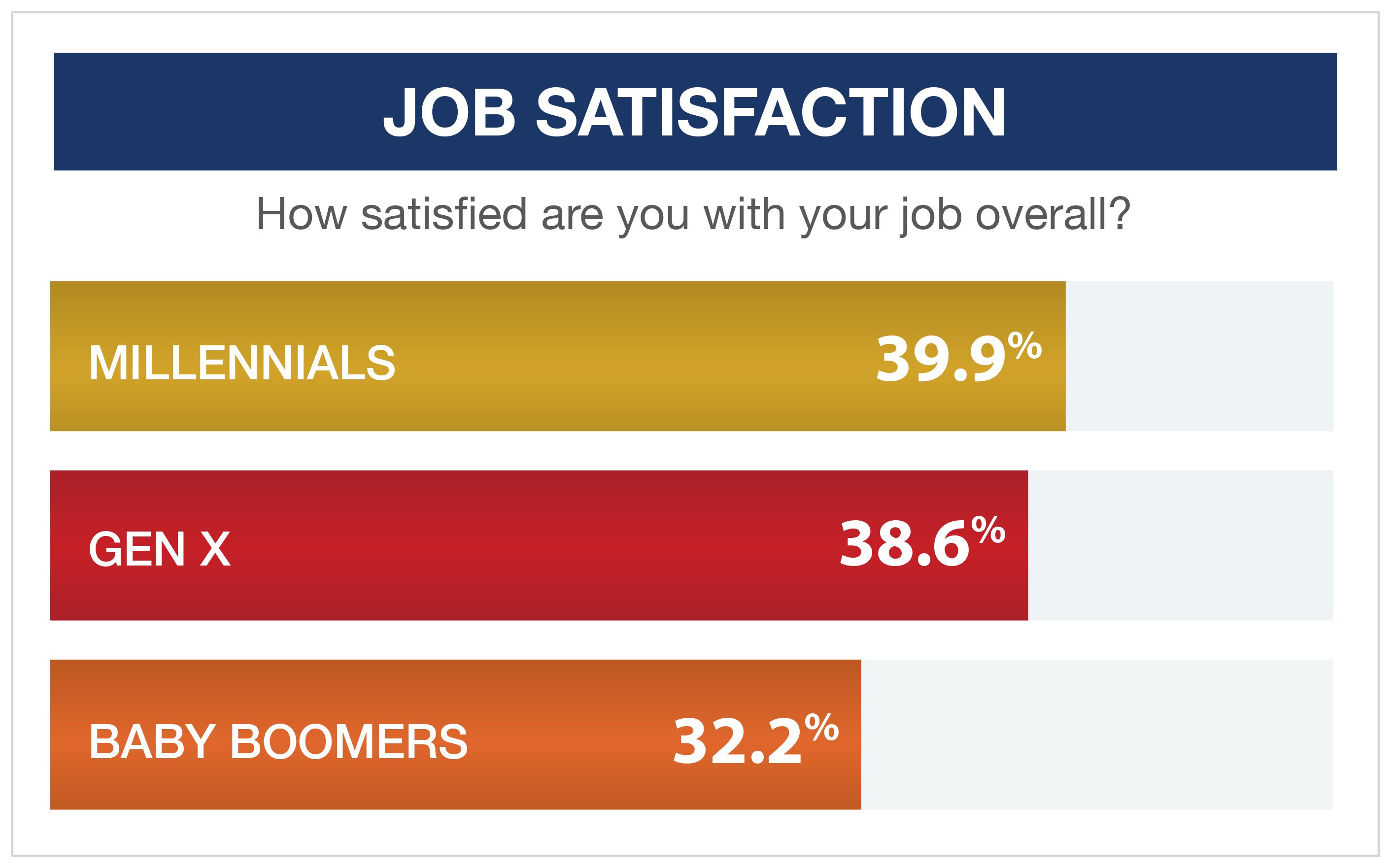In 2014, SuccessFactors, in collaboration with Oxford Economics, conducted twin studies of executives and employees across 27 countries, encompassing 5,500 professionals. Because the surveys were focused on the future workforce, half of the employee respondents were millennials, identified as under age 35. Gen X respondents are between the ages of 36 and 50, and baby boomers are 51 and over.

The study revealed insights about all workforce generations, but especially around the priorities and learning preferences for baby boomers.
Older workers are the least satisfied with their jobs overall. Learning leaders should be cautious about believing popular wisdom that older workers are more engaged than younger workers in the workplace.
Some might be, but overall, they are less satisfied with their jobs. Don’t focus all engagement and talent strategies on younger workers; older workers increasingly have alternative ideas and carry much of the organization’s knowledge in their heads.

Older workers are almost three times as likely to consider leaving because of lack of learning and development. This finding points directly to a need for CLO involvement. Evaluate learning and development offerings. What percentage are on advanced topics that would appeal to the highly experienced professional? These offerings are likely focused on introductory levels.
Older workers who are not already leaders may be less interested in leadership development. Instead, they want advanced topics in their professional fields. Are there offerings to keep seasoned employees up to date?
While millennials primarily rely on the relationship with their managers for learning and development, older workers are more independent and more able and willing to find resources to direct their own learning.

The CLO can enable this self-sufficiency by making resources readily available and easier to find for this age group. Offerings might include curated online communities of practice, external expert talk series, collaboration tools that allow experts to share content with each other, and an LMS catalog scheme that clearly indicates advanced topics.















